Oswald Mosley was a man who carved out a tumultuous niche in British history, and his legacy is peppered with controversy. Born on November 16, 1896, in West Bromwich, he belonged to a prominent family that supported his early education and social development. After the brutality of World War I, a pivotal experience that left him disillusioned, Mosley began to question the political landscape of Britain. Recognizing a need for change, he initially dabbled in the Labour Party, yearning for a more robust socio-political system but soon revolted against the constraints of mainstream politics.
Mosley’s early life set him on a dramatic path, where he would later become a key figure in the rise of fascism in the UK. It’s fascinating how life experiences morph belief systems, isn’t it? He observed the chaos of post-war Britain, which stirred a determination within him to champion a new political ideology. In the 1920s, his political ambitions led him to the forefront, gaining attention for his passionate speeches and charisma. Little did he know, this would only be the beginning.
His journey didn’t just involve the trauma of war, but rather, it was the socio-economic challenges that came afterward that ignited the fire in Mosley. Economic turmoil, unemployment, and a growing disinterest in the existing political structures filled the British streets with a sense of urgency for a fresh perspective. And that, my friends, was where Oswald Mosley started to formulate his radical ideas.
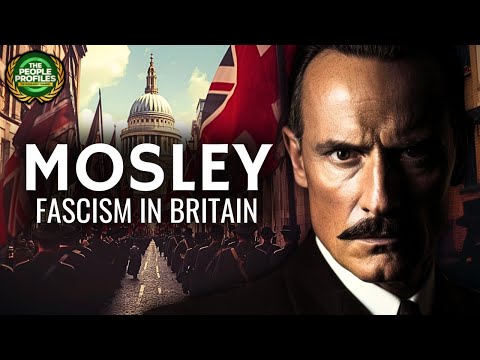
Oswald Mosley’s Fascist Ideology: Core Beliefs and Influences
Diving into the mind of Oswald Mosley unveils a mix of beliefs that seem straight out of a questionable history book. His ideology comprised nationalism, a knee-jerk opposition to communism, and a twist toward authoritarian efficiency. Influenced by figures like Benito Mussolini, Mosley’s thoughts cemented in the early 1930s. He painted a picture of economic nationalism, advocating for a centralized government, which played straight into the growing European fascism trend.
Mosley’s ideas didn’t just appear from thin air. They were born from the clamor of a populace yearning for strength and unity amidst chaos. Oh, how easy it is to get swept away by the allure of promises for a ‘stronger’ nation! He propagated concepts of racial purity, solidifying a blend of beliefs that intertwined various strands of British society while mimicking broader European fascist movements.
Yet here’s where it gets complicated. Mosley’s narrative wasn’t entirely dominated by horrific undertones found in the regimes of others like Hitler. The nuance of Oswald Mosley’s beliefs stemmed more from a desire to reclaim a national identity than from an outright genocidal agenda. But even this didn’t prevent accusations and public disdain from swirling around him.
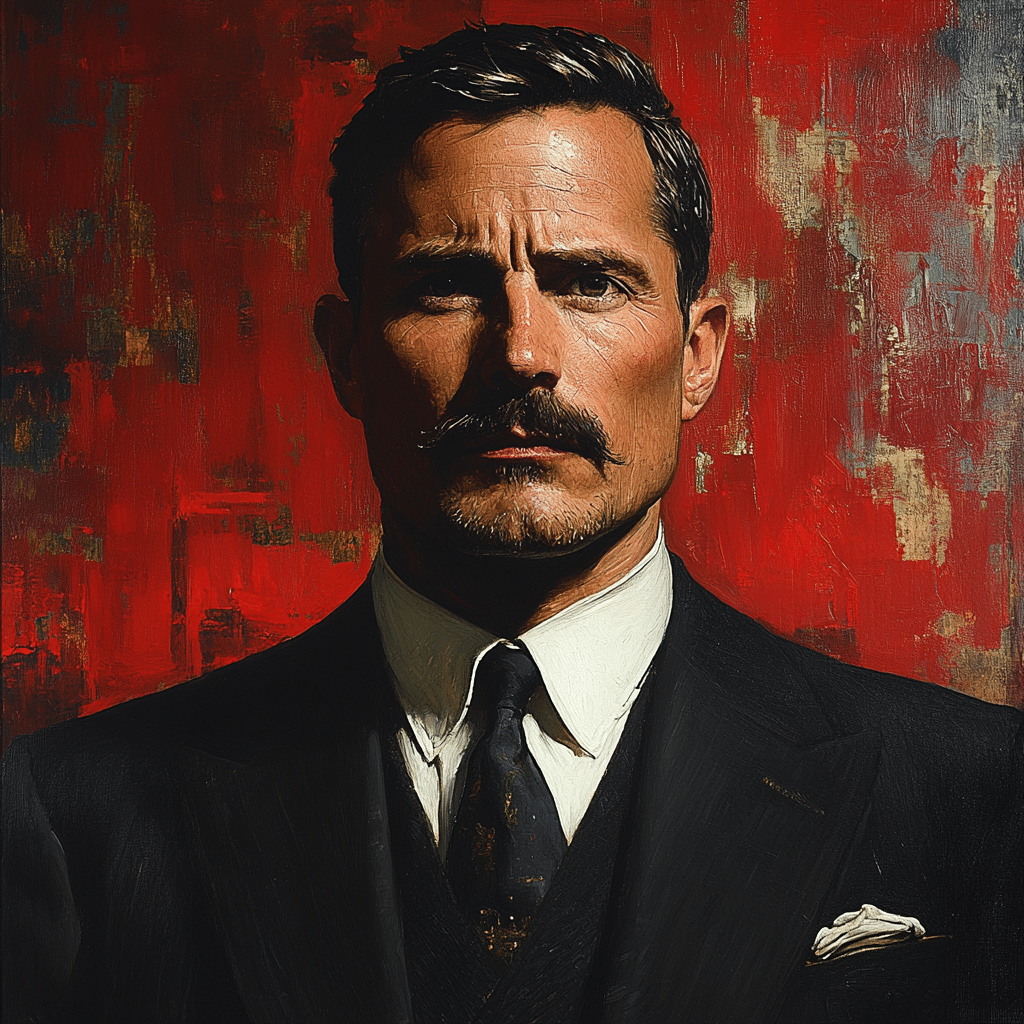
The Formation of the British Union of Fascists (BUF): Strategies and Public Reception
In 1932, Oswald Mosley founded the British Union of Fascists (BUF), complete with black-shirted uniforms that took the streets of Britain by storm. Talk about a bold move! The BUF’s public rallies, brimming with fervor, quickly led it to notoriety. Mosley understood the power of speech and visual impact—a maestro of media before it became a buzzword. Utilizing propaganda like a whip, he marketed himself as the ultimate leader, packaging his ideology in a way that many found compelling.
At first, the BUF lured many working-class supporters, eager for change and united by discontent. But the enthusiasm didn’t last long. Heavy confrontations with anti-fascist groups began to pop up, shaking the foundation of Mosley’s ambitions. One infamous clash that leaves a bitter taste is the Battle of Cable Street in 1936, where opposition met with resistance, challenging Mosley’s growing influence, and led to a hard lesson in the power of collective action.
The public’s reception of Oswald Mosley and the BUF was complex—welcomed by some, vocally opposed by others. The clashes between supporters and detractors only fueled the flames, demonstrating how closely ideology and the common man’s spirit intertwine. Yet, as the fervor intensified, Mosley faced immense scrutiny, which, as history would show, foreshadowed his eventual downfall.
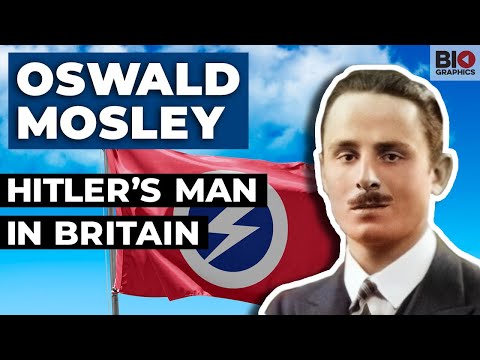
Oswald Mosley vs. Other Influential Leaders: A Comparative Analysis
When you look at Oswald Mosley, it’s tempting to hold him up against contemporaries like Adolf Hitler and Francisco Franco, but steering clear of simplistic comparisons sheds more light on his ideology. While Hitler’s regime was drenched in extremist racial terror, Mosley’s take leaned more toward British nationalism without that morbid emphasis on genocide. This distinction keeps historians debating his actual place on the fascist spectrum.
Each leader had their own flair for governance and ideological motivations. Hitler’s fascism spiraled into a catastrophic genocide that will always haunt history, while Franco’s approaches during the Spanish Civil War tried to temper the chaos with an authoritarian grip. Oswald Mosley, however, sought a solution within British soil, emphasizing unity over division but leaning into dangerous waters nonetheless.
By comparing these men, we highlight startling differences and startling similarities. The allure of power can lead any charismatic figure into dark corners of history. Mosley and his peers didn’t just compete for attention; they battled for hearts, minds, and ultimately control over peoples’ futures.
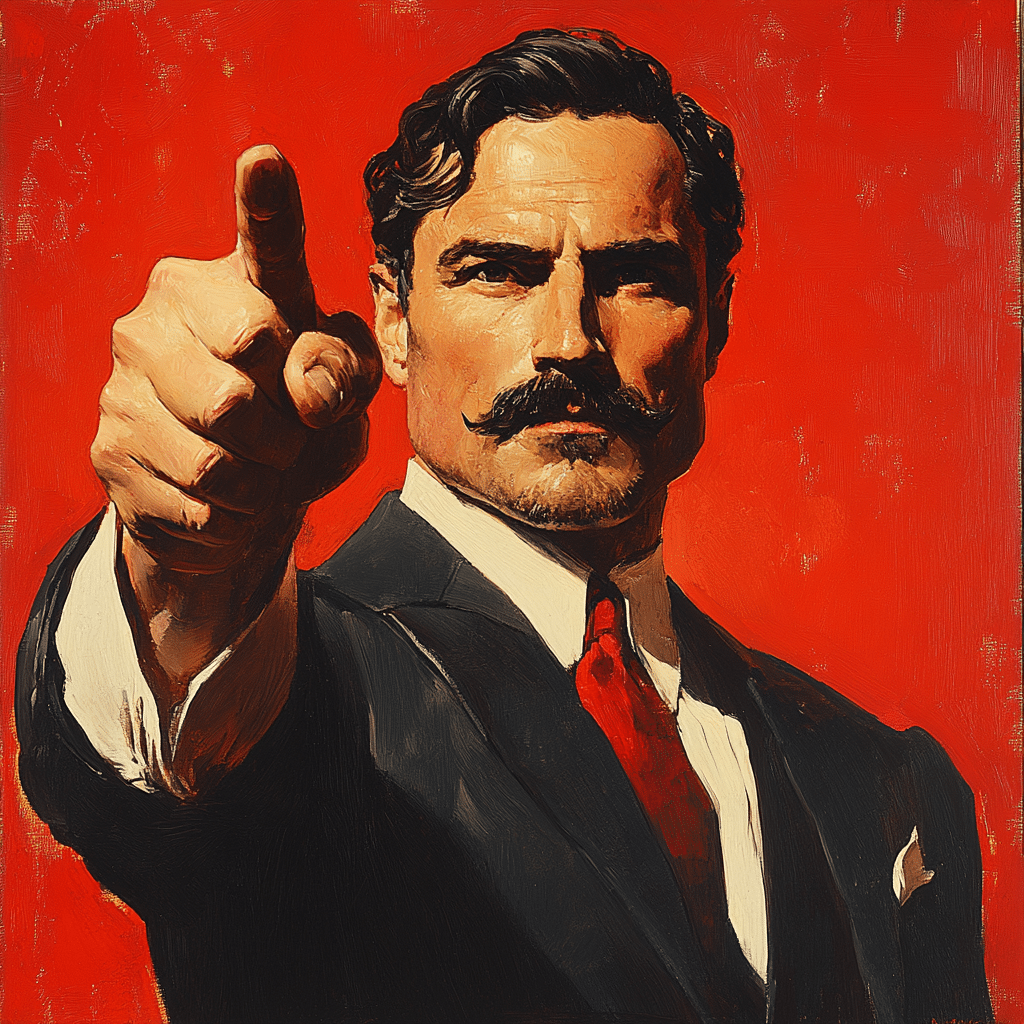
The Decline of Mosley’s Influence: Political and Personal Downfall
As World War II erupted, Oswald Mosley found himself in turbulent waters. By May 1940, his influence began to wane dramatically. Imprisoned due to his fascist affiliations, Mosley, who had once commanded presence in the public arena, now faced a grim silence. The ban on the BUF only deepened the disconnect between him and the political currents of the time.
With the Allied victory in 1945 came a decisive blow to fascism in Europe. Britain, meanwhile, was reshaped by post-war sentiments, rendering Mosley and his ideologies remnants of a bygone era. The doorbell of public opinion had stopped ringing in his favor. He moved abroad in 1951, mainly residing in Paris and later in Ireland, a ghost of his former self.
Historical figures often reveal fascination through decline; Oswald Mosley perfectly embodies this idea. His later life involved writing and feeble attempts to reclaim political ground, but society viewed him as a relic, disconnected and unmissed. What a turnaround it was!
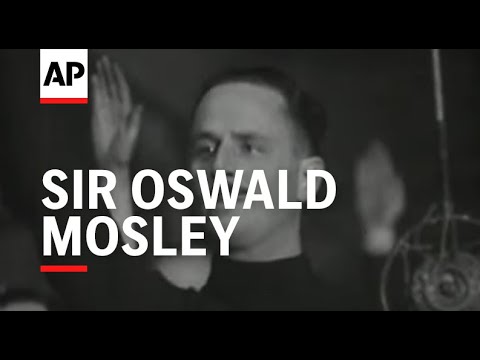
Oswald Mosley’s Legacy: Controversy and Modern Perspectives
The legacy of Oswald Mosley sits squarely in a controversial seat, stirring debate wherever it lands. On one end, sympathizers argue his ideas resonate with current social issues facing Britain; on the other, scholars and activists recoil at the mere mention of his name, viewing him as a dangerous reminder of where extremist ideologies can lead.
Today, far-right movements continue to bubble beneath the surface of British politics, echoing the vulnerabilities Mosley exploited long ago. The nostalgia for a ‘stronger’ Britain often revisits haunting chapters of history previously thought shelved. As modern-day Britain grapples with national identity, Mosley’s shadow looms large, a constant reminder of history’s cyclical nature.
Letting his forgotten ideology resurge attracts attention, compelling society to grapple with past mistakes anew. Discussions surrounding figures like Mosley reveal how easily extremist beliefs find fertile ground amid societal unrest. The challenge lies in acknowledging history’s lessons, ensuring they inform our move forward, rather than dictate it.
The Relevance of Oswald Mosley in Contemporary Political Discourse
In an era ripe with populist rhetoric and nationalist fervor, Oswald Mosley serves as a cautionary tale. His saga compels us to reflect on how swiftly an idea can gain traction in fragile societal contexts. It rings louder than ever—the importance of vigilance against the seductive allure of authoritarianism.
Modern Britain must tread carefully. The political landscape shifts, and the historic lessons from figures like Mosley remind us of the past’s dark allure. While many feel disenfranchised, the answer isn’t to turn back to authoritarian promises but to forge paths grounded in inclusivity and justice.
So, let’s not overlook Oswald Mosley. His life invites critical examination, urging us to shape a future that learns from history rather than repeat it. It’s a delicate balance, and one each of us must engage with as we navigate our ever-evolving world. The conversations surrounding the past will echo loudly into the future, influencing generations yet to come.
The life of Oswald Mosley serves as an intricate tapestry woven with ideology, culture, and societal vulnerabilities. As Britain and the world face their own socio-political challenges, understanding figures like Mosley remains crucial for creating a future grounded in justice and unity rather than division. So, let’s keep those conversations going, ensuring we never forget the lessons taught through the annals of history. Remember, folks, the price of freedom is eternal vigilance!
Oswald Mosley: The Controversial British Fascist Leader
A Man of Many Faces
Oswald Mosley was more than just a politician; he was a figure wrapped in contradictions. Known for his flamboyant personality, this British fascist leader had a knack for attracting attention, much like the latest trends in fashion that could drive one to utilize a nail filer for a polished look. Born into an aristocratic family, he proudly paraded his heritage while advocating for a radically different political ideology. Interestingly, his early politics included support for both the Labour Party and the Conservative Party before he eventually drifted toward fascism, showing that his political journey wasn’t straightforward.
The Big Ideas
Mosley’s British Union of Fascists (BUF) aimed to confront economic issues during the 1930s, believing that a strong, authoritarian government was the answer. Yet, many viewed his methods as extreme—think of how some people might moan louder than necessary about a minor inconvenience. Known for his charismatic oratory, Mosley could captivate audiences, stirring up national pride and offering a vision that many found appealing in troubling times. However, his views on race and society led to significant backlash, with numerous clashes erupting between BUF members and opponents, resembling a scene straight out of a gritty drama like Mare of Easttown Season 2, where conflict brews just beneath the surface.
Legacy of Controversy
Despite his temporary popularity, Mosley’s legacy is fraught with controversy. Many historians argue that his influence on British politics did little but deepen divisions. The stigma attached to his ideologies has lingered long past his time, almost like the faint scent of Nair hair removal lingering after use; hard to forget. While Oswald Mosley’s life and actions are often discussed in light of their impact on Britain’s political scene, they also serve as crucial lessons about propaganda and populism in shaping public opinion. Think of it like tongue twisters hard to unravel—he left behind a tangled web of ideas and effects that still resonate today.
The Public Fascination
Ultimately, Oswald Mosley remains a fascinating figure in British history—one whose life story feels ripped from a film script, much like the characters from Soul Land VI. His controversial persona, from compelling speeches to shocking beliefs, captivates and repulses in equal measure. His journey continues to be dissected, revealing truths that compel us to ponder the weight of political ideologies and their consequences. Much like the buzz around pop culture icons like Mark Hamill—whose net worth represents success in a different arena—Mosley’s life is a stark reminder of how personality and politics can intertwine, often with tumultuous results, and perhaps even a nod to the complexities found within the tales of a step sister wrapped in intrigue.
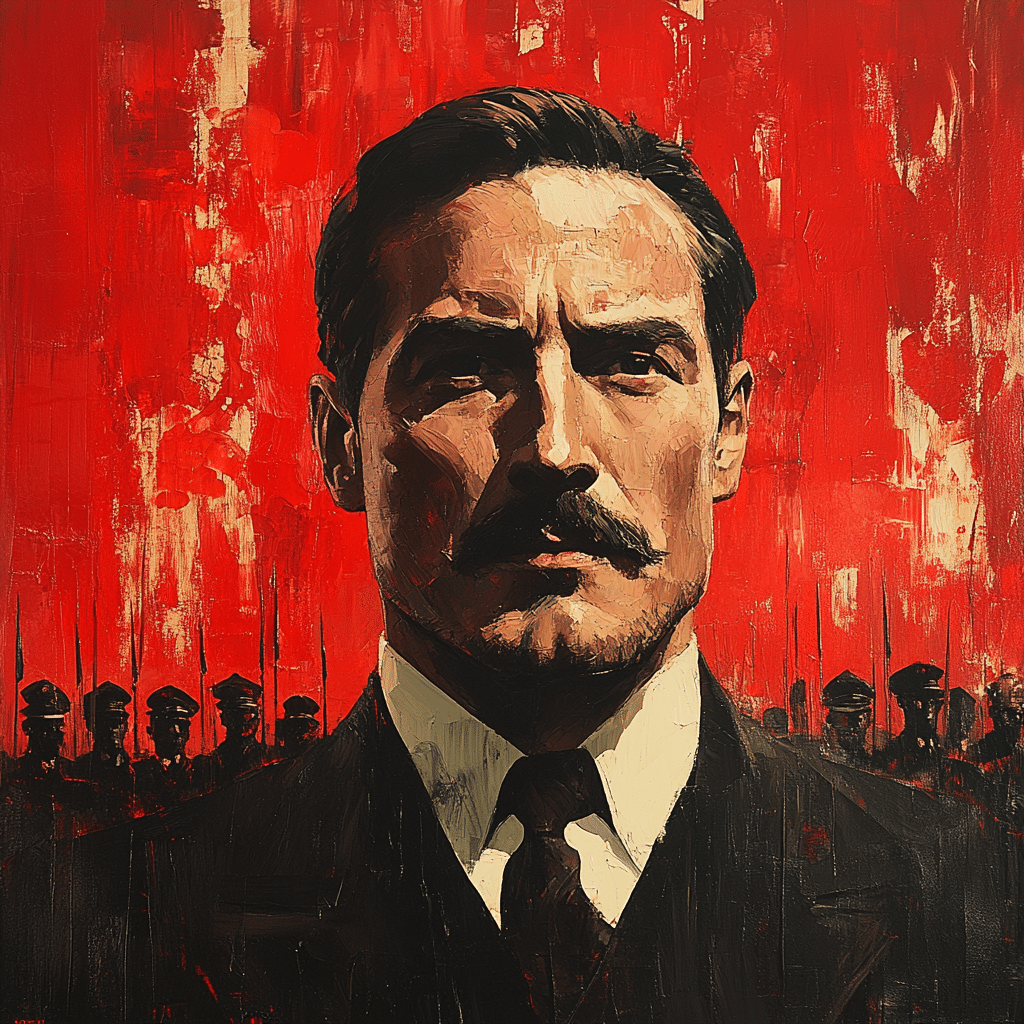
What happened to Oswald Mosley in real life?
Oswald Mosley was imprisoned in May 1940 when the Second World War broke out, and the British Union of Fascists was banned. After being released in 1943, he faced disgrace due to his fascist links and eventually moved abroad in 1951, spending most of his later years in Paris and Ireland.
What was Mosley famous for?
Mosley became well-known in the 1920s as a Member of Parliament. In the 1930s, he gained notoriety as the leader of the British Union of Fascists after becoming disillusioned with mainstream politics.
Was Mosley assassinated?
No, Mosley was not assassinated. Although there were several plots against him, he lived until 1980, eventually passing away from natural causes.
Why did the IRA save Mosley?
The IRA saved Mosley because they wanted to ensure his continued influence in British and Irish politics, which they believed aligned with their interests.
Was Thomas Shelby a real person?
Thomas Shelby is a fictional character created for the TV series “Peaky Blinders,” so he wasn’t a real person, though he might be inspired by various historical figures.
What is fascism in simple terms?
Fascism is a political system that emphasizes strong, centralized authority, often led by a dictatorial leader, and promotes nationalism, often at the expense of individual rights.
What was Moseley’s experiment?
Mosley’s experiment referred to his attempt to create a fascist state in Britain, promoting policies centered around nationalism and anti-communism but ultimately failing to gain widespread support.
What happened in Cable Street, London?
In Cable Street, London, on October 4, 1936, there was a major clash between anti-fascist protesters and police, as thousands gathered to stop Mosley’s fascist march, highlighting opposition to his views.
What political party is Tommy Shelby?
Tommy Shelby leads the Peaky Blinders, a gang that shows elements of political influence, including engaging in local politics and dealings with various factions throughout the series.
Who was Jack Nelson?
Jack Nelson is a character from “Peaky Blinders,” portrayed as an American politician with connections to organized crime, adding complexity to the show’s political landscape.
Who is Oswald Mosley based on in Peaky Blinders?
Oswald Mosley in “Peaky Blinders” is not based on a single historical figure directly, but rather, he’s a dramatized version of various political leaders and movements from the time.
Did Finn ruin Tommy’s plan?
Yes, in “Peaky Blinders,” Finn’s actions create problems for Tommy’s plans, leading to tension and conflict within the family and the gang.
Is the IRA still active?
The IRA is still active, but its structure and focus have evolved over the years. Today, while there are splinter groups, the main organization is committed to peace and political processes in Ireland.
Why are they called Peaky Blinders?
The name Peaky Blinders comes from the practice of sewing razor blades into the peaks of their flat caps, which the gang members would use to intimidate rivals.
What is Tommy smoking in Peaky Blinders?
In “Peaky Blinders,” Tommy is often seen smoking cigarettes, particularly during scenes that portray his brooding or strategic thinking, reflecting the tough, gritty atmosphere of the series.
Who was Oswald Mosley’s best man?
Oswald Mosley’s best man at his wedding was Sir Oswald’s friend, but this detail is less documented in popular history compared to other aspects of his life.
Who was Jack Nelson?
Jack Nelson is portrayed as a significant figure in “Peaky Blinders,” serving as a connection to American politics and organized crime, influencing the show’s central players.
What happened to Mosley Peaky Blinders?
In “Peaky Blinders,” Mosley’s story arc showcases his continued rise to power and influence, causing conflicts with Tommy Shelby and others in Birmingham.
How accurate are Peaky Blinders?
While “Peaky Blinders” takes inspiration from historical events and figures, it also includes fictional elements and dramatic interpretations, so not every detail is strictly accurate.


























